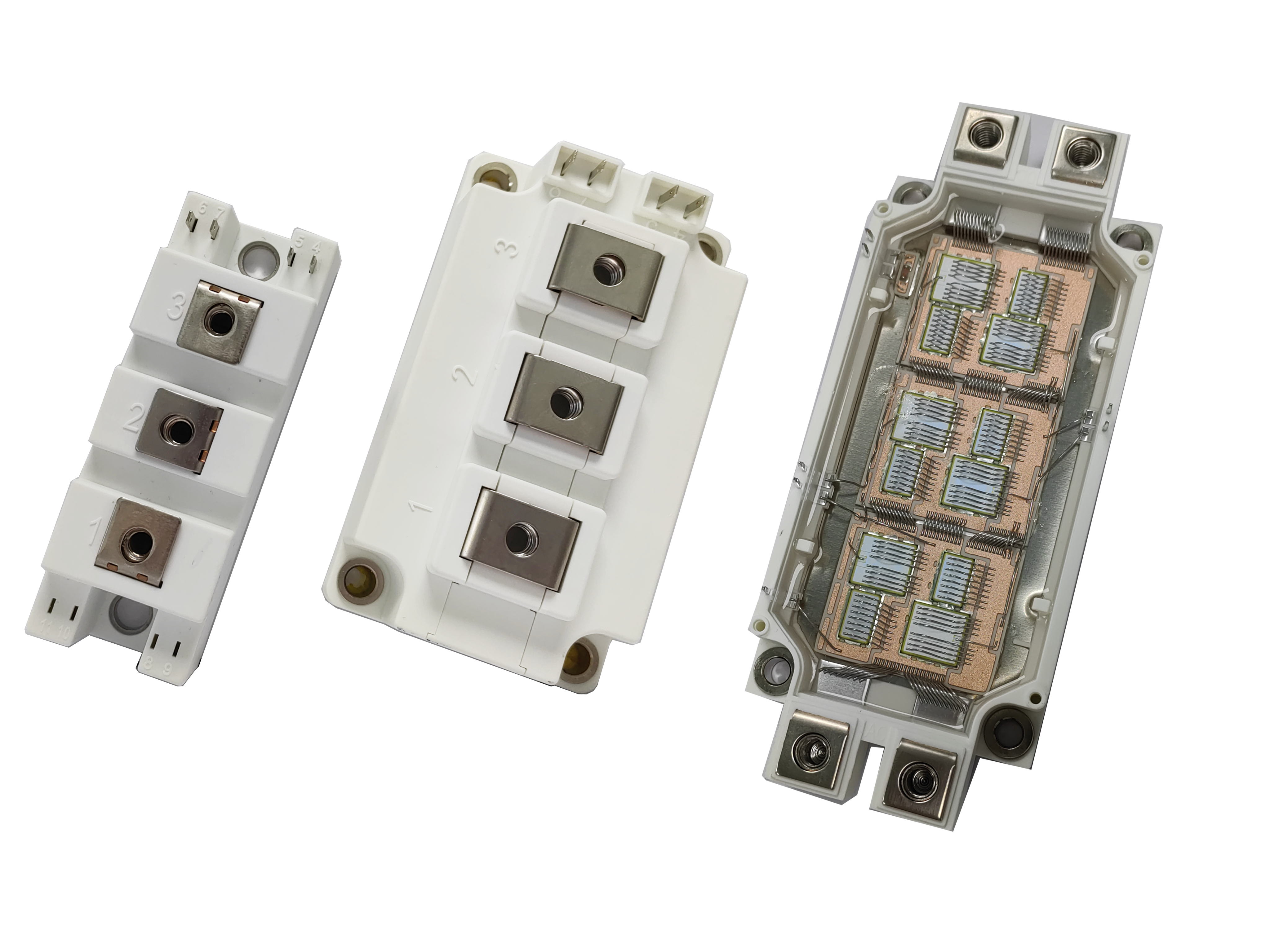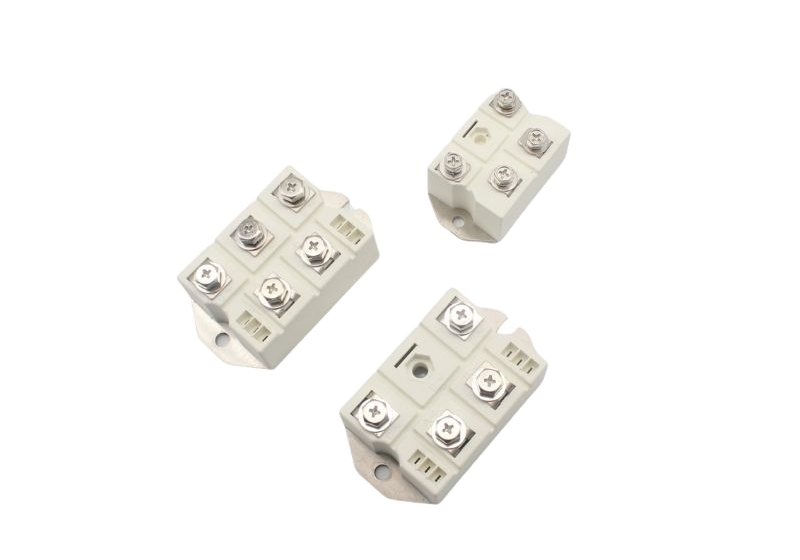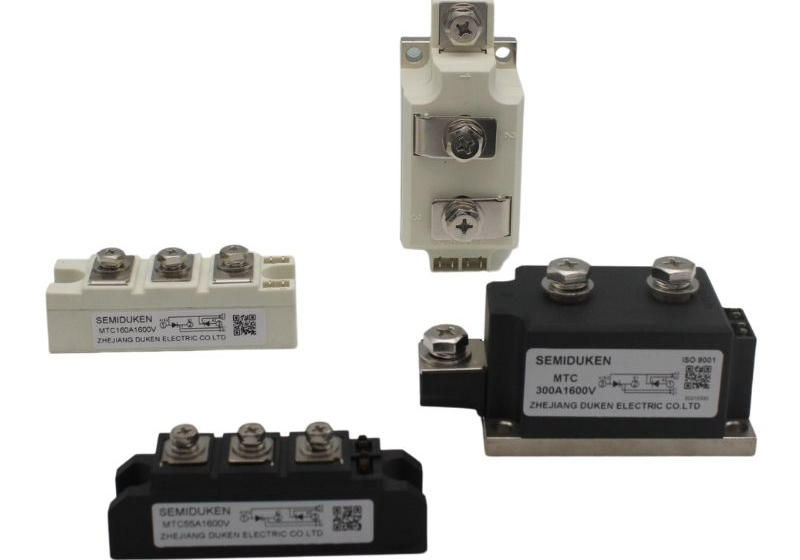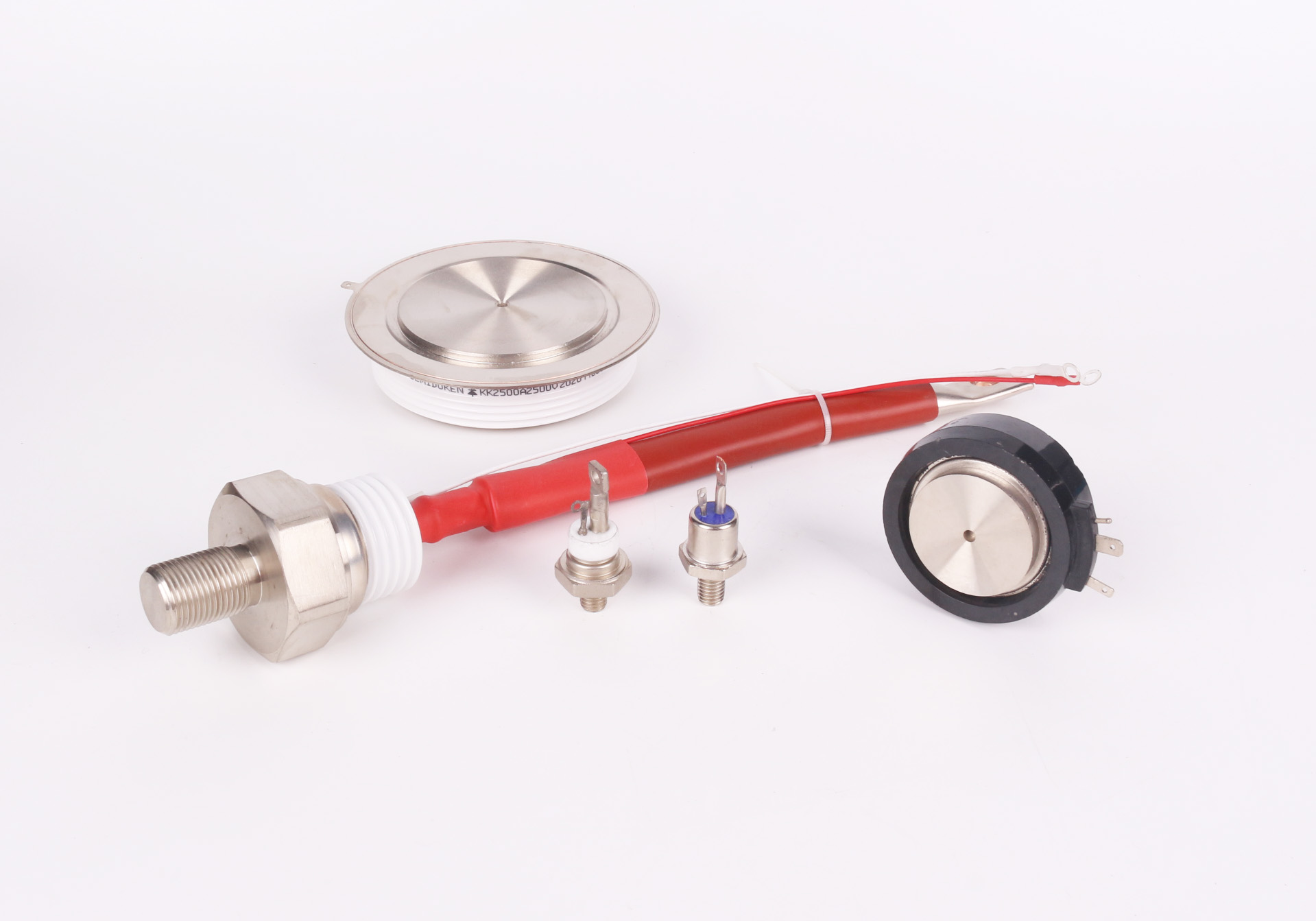Reliability and Fault Tolerance: Thyristors vs. Modern Power Control Devices
In high-reliability systems like UPS, industrial HVAC, and HVDC converters, the ability of a power control device to tolerate faults and maintain stability is paramount. This article compares thyristor modules with other models such as IGBTs and MOSFETs in terms of fault tolerance, ruggedness, and long-term reliability in challenging industrial environments.
1. Fault Tolerance Under Surge Conditions
Thyristor modules are known for their superior tolerance to High surge current events. These modules can handle repetitive surges without degradation, which is especially valuable in energy storage systems or during load switching in industrial phase control settings.
By contrast, IGBTs and MOSFETs, while highly effective in fast-switching applications, are more vulnerable to transient overloads unless protected by snubbers or complex gate drivers. The dual thyristor module architecture in anti-parallel configurations naturally resists such surges, contributing to system resilience.
2. Performance in Harsh Voltage Environments
For HVDC or HVAC systems operating between 1600V and 6500V, thyristor modules maintain stable operation with fewer active protections. Their structure inherently limits overvoltage risk due to their natural commutation characteristics.
In comparison, high-frequency devices like MOSFETs require precise gate timing and are prone to voltage spikes. Thyristors, due to their low on‑state voltage and current-driven triggering, are better suited for harsh and noisy electrical environments.
3. Component Aging and Service Intervals
Because of their rugged construction and fewer active switching components, thyristors degrade slower over time compared to IGBTs, which suffer from thermal cycling. In industrial setups with long operating cycles, this translates to fewer maintenance intervals and reduced downtime.
Dual thyristor modules also experience balanced wear in anti-parallel systems, extending their usable life. For industrial HVAC systems, this reliability is a major advantage when uptime is critical.
4. Diagnostic Simplicity and Field Repair
Thyristor modules are easier to diagnose and replace in the field due to their simpler failure modes. Engineers can often pinpoint failures by measuring forward voltage drop or gate response under load.
With IGBTs, failure diagnosis can be more complex due to integrated gate drivers and temperature-sensitive behaviors. This increases repair time and often requires full module replacements.






